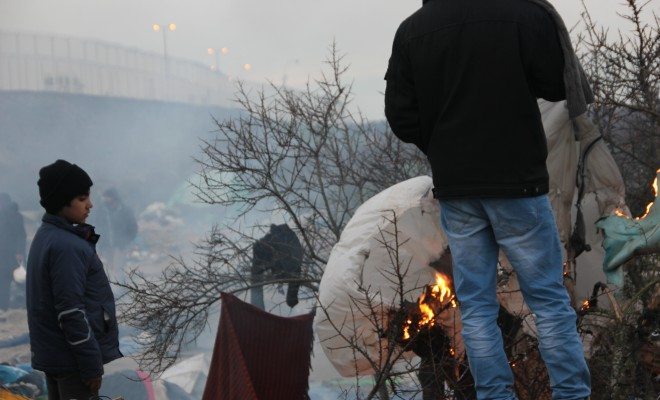 Image courtesy of [malachybrowne via Flickr]
Image courtesy of [malachybrowne via Flickr]
World
“The Jungle”: Riots in the Calais Refugee Camp
The most infamous refugee camp in Calais, France is currently being dismantled by bulldozers, sledgehammers, and axes while its residents clash with police. “The Jungle,” which has existed since 2002, is being razed as conditions have gotten so unsanitary that French authorities can no longer maintain the camp.
The Jungle has been destroyed and rebuilt in the past, but the influx of immigrants over the past year has led to a swell in the population of the camp, making it a much more daunting task to relocate camp inhabitants. There are concerns that, with waves of anti-immigrant sentiment sweeping across Europe, immigrants who leave the Jungle may be vulnerable to violence when they are relocated to other areas. Other smaller “jungles” have emerged in France but none has created the same social networks and infrastructure as the Calais camp. The Jungle may not be sanitary or pleasant but there is a sense of community that will be challenging to recreate once the settlement has been destroyed.
According to The Guardian,
The noise of hammering is everywhere, as refugees knock up basic wooden frames that become, in the space of a day, restaurants and shops, hairdressers and phone-charging booths, arranged along an informal high street. Volunteers from across Europe have built a school, a day-care center for children, a library, a couple of mosques, a church, a refugee advice center, an art therapy tent and medical centers.
As of last month, there were approximately 5,500 migrants living in the Jungle. Over half of these migrants live in the areas of the camp that are currently being destroyed. Inhabitants of the Jungle have taken matters into their own hands, clambering onto roofs and throwing stones at the demolition forces moving through the camp. Multiple young men sewed their mouths shut in protest and a hunger strike was instituted among several Iranian camp residents.
Conditions in the camp are deplorable. The Jungle is located on top of a former toxic waste dump, where fire hazards are plentiful and the close living quarters allow diseases to spread quickly. The French government cannot let the Jungle to continue as it is, yet evacuating the camp leaves thousands of people homeless. Perhaps if there was some sort of guarantee that these refugees would not be attacked once they left the camp, there would be more cooperation in relocating to new camps. However, after arson attacks on refugee camps in Germany, moving to an unknown camp–where there are no well-established social networks and protections–feels like condemnation for many of the refugees.
The Jungle operates by the same code that slums across the world have used for centuries–it is dangerous and unsanitary, but for the people who live there, there is a form of safety that comes from community. Unfortunately, the sheer size of the camp, which is the reason it has created a diverse, thriving community, is exactly what has doomed the camp to destruction. Ultimately, 5,500 people cannot live in such a small geographic area without compromising sanitation and resources. There is no clear solution to end the protests in the Jungle, as both the French officials and the protesting migrants have valid motivations for their actions. However, the police forces’ use of tear gas and hoses does not serve the interests of either side. As French use of force escalates, refugees are responding in kind, mutating the Jungle from a safe haven to a “war zone.”








Comments